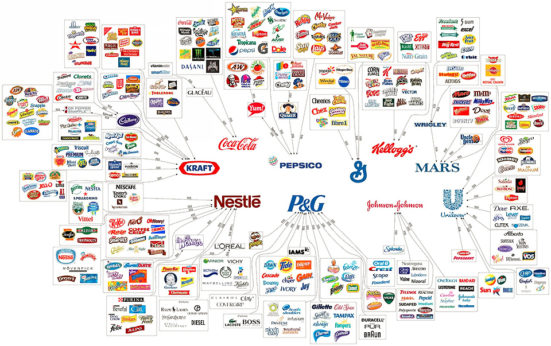
Whose money is it? Many departments of corrections (DOCs) supplement their state budgets with business deals. These deals mean free or under 50-cents-per-hour use of prison workers. It’s a billion-dollar industry that many Americans know nothing about.
Over 50 prominent American corporations have been exposed for using prison laborers to reduce their payroll costs over the last several years. Prior to 2016, organic grocery giant Whole Foods sold a $12-a-pound bag of tilapia that was labeled “from sustainable American family farms.” This family farm was actually Colorado prisoners making 74 cents a day or less. And their fancy goat cheese? The goats and milk were produced by the same prisoners. Whole Foods saved money and the Colorado Department of Corrections likely made a bundle.
Some McDonald’s crew member uniforms are made by prisoners making even less money—a lot less—than the ones who wear the uniforms. Walmart has been known to buy produce from prison-run gardens. Female inmates in South Carolina have in the past sewn intimate apparel for Victoria’s Secret. In fact, whistleblowing inmates were placed in solitary confinement when they exposed that they had been told to remove “Made in Honduras” labels and replace them with “Made in America” labels. In 1993, AT&T laid off thousands of union employees in call centers to be replaced by a prisoner answering call center. Those prisoners made less than $2 a day.
The website of Buycott, which encourages consumers to make sure the companies they shop with match their principles, lists many surprising American companies who have relied on exploited prison labor. They include: Abbott Laboratories, Autozone, Bank of America, Bayer, Cargill, Caterpillar, Chevron, Costco, John Deere, Eli Lilly, GlaxoSmithKline, International Paper, Johnson & Johnson, Sears, Koch Industries, Mary Kay, Merck, Motorola, Pfizer, ConAgra Foods, Starbucks, United Airlines, UPS, Verizon, Wendy’s. When you purchase products from these companies, you might be unknowingly participating in the prison labor system.
On a side note, but worth mentioning: The hidden fact is that just ten companies own the world markets for most of the products we use in our homes everyday. Many of the corporate titans of the Trump era (and within his administration) are essentially the same exploiters who have dominated our economy for the past century. Yet what is more pronounced today is that some of those companies are exploiting prison workers by using a loophole in the 13th Amendment to the U.S. Constitution.
A recent National Review article by Chandra Bozelko speaks directly and personally about prison slavery. “Getting Congress to amend the tax code and define even unpaid prison labor as employment in the coming session would trade the language of oppression—calling what inmates do slavery—for the language of power—calling their activity employment—and change prisoners’ mindsets and views of themselves,” she writes. “In addition to changing prisoners’ self-concept, allowing them to collect unemployment benefits can change their ability to support themselves when they leave custody and help them remain law-abiding and free.”
Prison Policy Initiative lists state by state the average prison worker’s wage. In several states—mostly in the South—prisoners receive absolutely no pay for jobs they may do. In some others, they may earn up to $56 a month for a full-time 7-hour-a-day job. The most well-paid may break $100 a month, again, for a full-time job. And these numbers, in many cases, are going down, not up.
Mark Salay of KWBU says, “The use of prison labor, and its meager compensation, has long been a contentious issue. But while it is private prisons that get a lot of media attention for their for-profit business model, wages for the incarcerated in public and federal prisons, which hold the vast majority of inmates, have declined over the past two decades.”
The nation’s incarceration rate has spiked as much as 500 percent in the last 40 years, driven in part by the War on Drugs and bipartisan “tough-on-crime” policies. While the prison population has skyrocketed, government funding for housing the prisoners has not kept up. That has forced the incarcerated to help pay for the high cost of their imprisonment through steep fees. Coupled with low or in some cases non-existent wages, that has left inmates in destitute conditions over the course of their sentence.
“The cost of living goes up every year on the outside and they don’t just account for that in prison,” said Cole Dorsey, an organizer for the Incarcerated Workers Organizing Committee (IWOC), an offshoot of the Industrial Workers of the World union.
IWOC allies itself with prisoners and states on their website:
“Prisoners are some of the most exploited workers in the country. There are very few safety regulations and no worker’s compensation for injury on the job. While in prison, [prisoners] try to earn money to support their families, themselves and pay victim restitution yet these wages prevent them from that.”
IWOC says it is working to abolish prison slavery and argues the current corrections system “does not correct anyone or make our communities safer.”
An honest and heartfelt discussion on exploiting prison workers is necessary for any true change to happen. Amending the 13th Amendment as it relates to prison slavery is a must. Becoming aware of the plight of these exploited workers by society is another.











